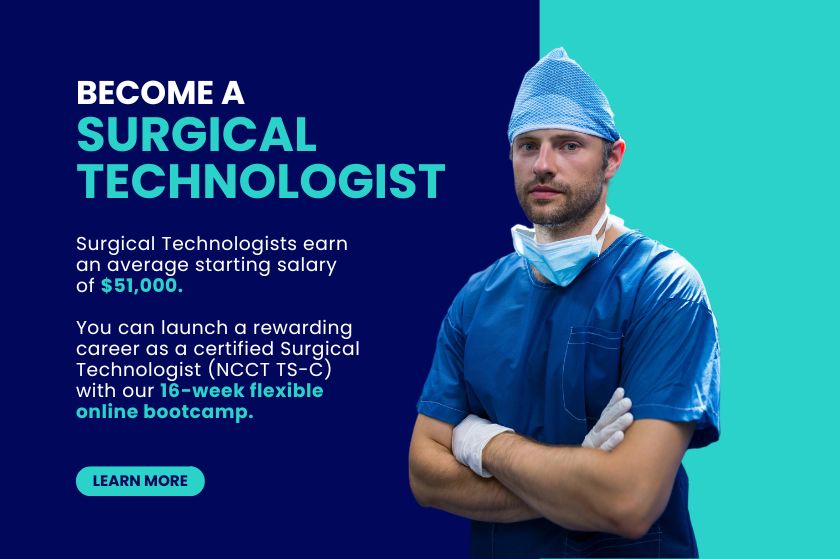Surgical technology is a critical field within the realm of healthcare, encompassing a range of responsibilities that contribute to the success of surgical procedures. A surgical technologist plays a pivotal role in the operating room, ensuring that all necessary tools and equipment are ready, sterile conditions are maintained, and the surgical team operates smoothly. Aspiring surgical technologists must acquire a diverse set of skills to excel in this demanding and rewarding career. In this article, we will explore 11 essential skills required for a career in surgical technology.
1. Attention to Detail and Sterile Technique
One of the fundamental skills in surgical technology is an impeccable attention to detail. Surgical technologists must ensure that all instruments, equipment, and materials are prepared accurately and in adherence to sterile protocols. A small oversight could potentially lead to infections or complications for the patient. Maintaining a sterile environment requires meticulous attention to detail in handling instruments, gowning, gloving, and setting up the surgical field. Without a keen eye for detail, the integrity of the surgical procedure could be compromised.
2. Anatomy and Medical Terminology
A solid foundation in human anatomy and medical terminology is indispensable for a surgical technologist. Understanding the structure and function of the human body enables technologists to anticipate the surgeon's needs during a procedure. Familiarity with medical terminology ensures clear communication with the surgical team, minimizing the risk of misunderstandings and mistakes. Proficiency in anatomical knowledge aids in positioning patients correctly, assisting in organ exposure, and identifying potential complications.
3. Effective Communication and Teamwork
Surgical procedures are complex and require seamless collaboration among the surgical team members. Surgical technologists must be adept at communicating clearly and efficiently with surgeons, nurses, anesthesiologists, and other team members. Effective communication facilitates the smooth flow of the operation and ensures that everyone is on the same page. Strong teamwork skills are essential to anticipate the needs of the surgeon and other team members, leading to a successful surgery.
4. Problem-Solving and Adaptability
Not every surgery goes according to plan. Surgical technologists must possess problem-solving skills to address unexpected challenges that may arise during a procedure. These challenges could range from sudden changes in patient condition to technical malfunctions. Being adaptable and quick-thinking is vital to maintaining a calm and efficient environment in the operating room.
5. Hand-Eye Coordination and Dexterity
Surgical technologists work with a variety of delicate instruments and equipment that require precise handling. Developing exceptional hand-eye coordination and dexterity is crucial for tasks such as suturing, passing instruments, and manipulating tissues. Proficiency in these skills helps prevent accidental injuries to both the patient and the surgical team.
6. Organization and Time Management
Operating rooms are fast-paced environments where multiple tasks are carried out simultaneously. Surgical technologists must be highly organized and skilled in time management to ensure that all aspects of the procedure are executed smoothly. From preparing the surgical tray to anticipating the surgeon's next move, effective organization and time management contribute to the overall success of the surgery.
7. Technical Proficiency
Surgical technologists work with a variety of medical equipment, including diagnostic tools, imaging devices, and robotic systems. A solid foundation in technology is essential for understanding and operating these instruments effectively. Staying updated with the latest advancements in medical technology is crucial for providing the best possible care to patients.
8. Stress Management
The operating room can be a high-stress environment, especially during complex or emergency surgeries. Surgical technologists need the ability to manage their stress and emotions effectively, ensuring that they can perform their duties with focus and composure. The well-being of the patient depends on the ability of the surgical team to work under pressure.
9. Infection Control Knowledge
Preventing infections is of paramount importance in the surgical environment. Surgical technologists must be well-versed in infection control protocols and practices to minimize the risk of postoperative complications. This includes knowledge of sterilization techniques, aseptic procedures, and proper handling of contaminated materials.
10. Ethical and Professional Behavior
Surgical technologists have access to sensitive patient information and are involved in critical medical procedures. Upholding ethical standards and maintaining professionalism is essential to ensure patient privacy, trust, and the overall integrity of the healthcare system.
11. Continuous Learning and Adaptation
The field of healthcare is constantly evolving, with new techniques, technologies, and practices emerging regularly. Surgical technologists must have a commitment to continuous learning and adaptation to stay current and provide the best care possible. Engaging in professional development opportunities and staying informed about industry trends are key components of success in this field.
In conclusion, a career in surgical technology demands a unique blend of technical skills, medical knowledge, and personal attributes. By mastering these 11 skills, aspiring surgical technologists can thrive in the fast-paced and dynamic environment of the operating room.
If you're passionate about pursuing a career in surgical technology, the Surgical Technologist Bootcamp offered by Health Tech Academy is your pathway to success. Our industry-leading accelerated education program equips aspiring surgical technologists with the comprehensive skills and knowledge needed to excel in the field.
Frequently Asked Questions and Answers
- What does a surgical technologist do: A surgical technologist assists surgeons and nurses during operations by preparing the operating room, sterilizing instruments, passing tools, and maintaining a sterile environment.
- What skills are essential for a surgical technologist: Key skills include attention to detail, anatomy knowledge, communication, teamwork, problem-solving, hand-eye coordination, technical proficiency, stress management, infection control, professionalism, and continuous learning.
- Where do surgical technologists typically work: Surgical technologists usually work in hospitals, surgical centers, and clinics, often in high-pressure, fast-paced environments requiring focus and precision.
- How can someone start a career as a surgical technologist: Aspiring surgical technologists can enroll in programs like the Health Tech Academy Surgical Technologist Bootcamp to gain hands-on training and the essential skills needed to succeed in the field.



